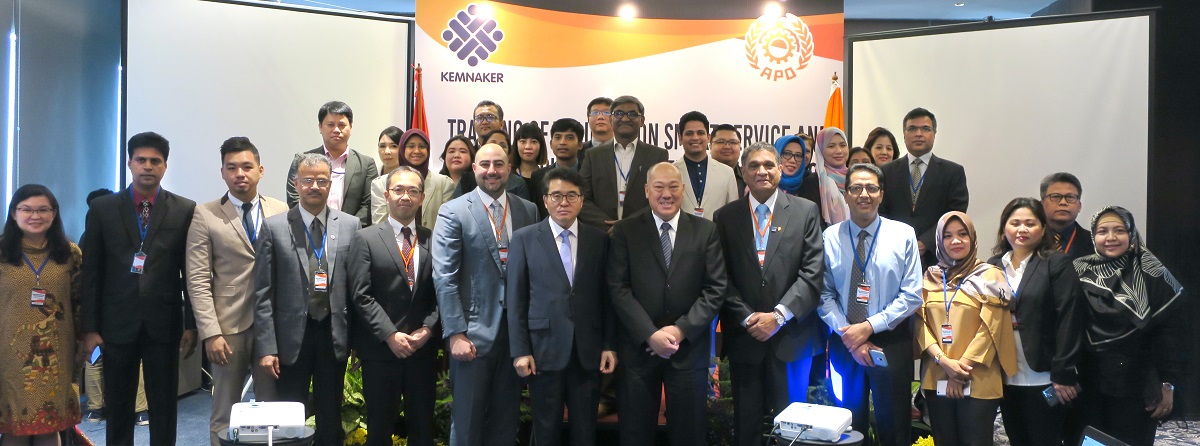
Select Page
With more than half of the world population living in the Asia-Pacific and spurred by factors such as rising incomes and spending power, greater awareness of healthy lifestyles, and aging populations, the need to offer better healthcare has increased. At the same time, people are demanding better service quality. Therefore, a transformation of the entire healthcare ecosystem is required, from pharmaceutical manufacturers to makers of medical devices, and from insurance companies to hospital chain operators. The use of technology such as smartphones, connected medical accessories, and health-related apps has increased markedly in the past few years. Consumers, especially the millennial generation, prefer to monitor and diagnose their health anytime, anywhere through mobile apps.
 A training-of-trainers course on Smart Service and Technology for the Health Sector was organized by the APO in conjunction with the NPO of Indonesia in Jakarta, 22–26 April 2019, to familiarize participants with the latest smart service models and technologies in the era of Industry 4.0 and their impact on the health sector. Twenty-four participants from 13 member countries attended, representing government agencies, NPOs, and the health sector along with related consultants and trainers. In opening the course, APO Alternate Director for Indonesia Kunjung Masehat welcomed all and emphasized that understanding state-of-the-art technology and smart services in the era of industry 4.0 was crucial to increase the productivity of healthcare.
A training-of-trainers course on Smart Service and Technology for the Health Sector was organized by the APO in conjunction with the NPO of Indonesia in Jakarta, 22–26 April 2019, to familiarize participants with the latest smart service models and technologies in the era of Industry 4.0 and their impact on the health sector. Twenty-four participants from 13 member countries attended, representing government agencies, NPOs, and the health sector along with related consultants and trainers. In opening the course, APO Alternate Director for Indonesia Kunjung Masehat welcomed all and emphasized that understanding state-of-the-art technology and smart services in the era of industry 4.0 was crucial to increase the productivity of healthcare.
Three resource speakers gave presentations on advanced smart service, technologies, and future trends for accelerated productivity growth and competitiveness in the health sector: President Hideyuki Ezaki of Management Assistance Co., Ltd., Japan; President Harnek Singh of the Asia Pacific Quality Organization, Singapore; and CEO and Founder Dr. Carlo Bellini of Health Innovation and Performance Consulting, UK.
To demonstrate how Indonesia has developed and applied smart services and technology to raise productivity in the health sector, site visits were hosted by UPT Sel Punca, RSCM, University of Indonesia, and PT Kalbe Farma. After sharing examples of such applications in the health sectors in their countries, participants developed action plans for disseminating and applying the knowledge and insights acquired during the course.
Photo: NPO Indonesia